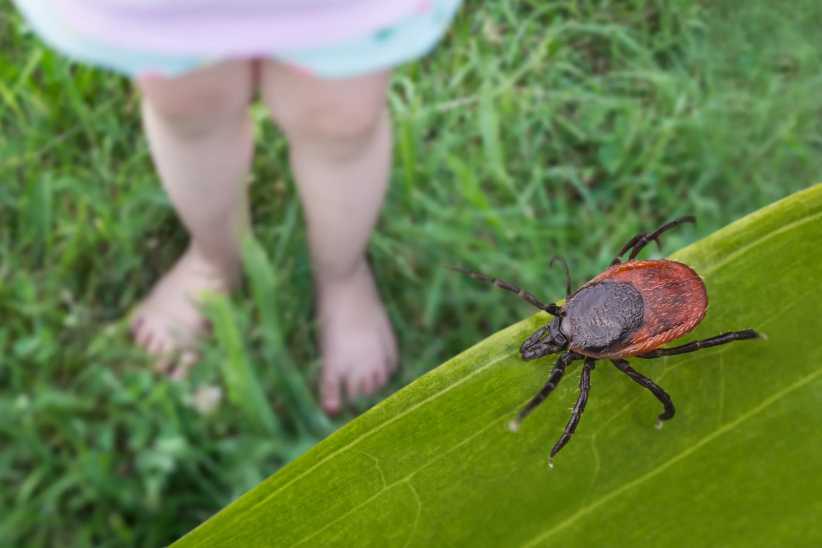The preschool years are an exciting phase for both children and parents. It is the time when children pass through babyhood and enter childhood. During their third and fourth years, children enjoy a great deal of social, emotional, cognitive, and physical growth. They become stronger and more in control of their bodies, emotions, and environment. It is in this stage that many pieces of the puzzle start to fall into place, and parents begin to catch glimpses of the person their child is becoming.

Emotions
Between the ages of 3 and 4, children experience tremendous emotional growth. They begin to understand on a basic level what causes certain feelings, and will offer simple help to those in distress. When a playmate cries or becomes angry, a child may offer a hug or share a special toy. It is important that parents recognize and encourage this emphatic behavior. This will help children develop compassion. It will also help them learn to identify emotions in themselves and in others.
For a preschooler, learning to identify emotions is the first step towards learning how to manage them. When a child can correctly label feelings, he is better able to express himself and his needs. Parents can help children develop this valuable skill through play. Mirror games, face cards, and play acting are all great ways to help children identify their emotions. Reading and storytelling can also be very helpful. Describing why a favorite character feels a certain way is fun and lets children practice expressing emotions.
As preschoolers begin to identify their emotions, there is a notable shift in how they handle themselves. Tantrums, while still present especially during times of stress, become fewer and farther between. This makes it a great time to teach them how to soothe and comfort themselves. Instructing children to use touch or a simple phrase can go a long way in helping them manage anxiety and stress. A mother may place her hand on her heart and then on her child’s to let him know that this is the place where she is always with him. Then throughout the day when he needs reassuring, all he needs to do is touch that place to feel comforted. The same goes for words. For instance, if he suffers separation anxiety, repeating the phrase “Daddy will be back” will remind him that all is well, and his father will return.
Friendship
Friendships are very important in the preschool years. Once children begin to understand emotions and their connection to other people, they begin to establish friendships. For 3- and 4-year-olds, friendship begins by showing interest in other children and mimicking them. While these children long for playmates, they are just learning the social skills necessary to friendship.
Social skills are learned through practice. Therefore, it is important that parents arrange regular playtime for their children. If a child does not attend daycare or preschool, make play dates or join a playgroup. At 3, children may feel more comfortable having a parent present while they play and will often turn for help with social skills. By the age of 4, children are better at reading their playmates’ emotions. This allows them to formulate their own solutions, which, in turn, makes them less dependent on parental interference.
Fears
Preschoolers often experience a great many fears. They fear everyday things like dogs, baths, and the dark. Dogs are loud, water magically disappears from the tub, and darkness can be scary. These fears are intensified by the fact that it is hard for this age group to separate fantasy from reality. If a 3-year-old has a nightmare, it is difficult for him to understand the concept of dreaming. For him, the dream really happened. As adults, parents know this is not the truth of the situation, but it is very important they treat the child’s fear with respect. When a child suffers from nightmares or night terrors, parents need to be understanding and offer comfort. They should address and acknowledge the child’s fear. They should also offer comfort in the form of soothing words and loving touch. Sitting with the child and massaging his temples or stomach until he is able to return to sleep can help alleviate the stress and anxiety of fear. Simply having a parent with him until the fear passes makes a child feel safe and cared for.
Self-Esteem
At this stage, children are beginning to develop a sense of self-esteem. A healthy self-esteem is crucial to future success. When a child knows he is loved, he feels worthy and capable. At this age, when children are rapidly developing, esteem may be specific to one area. A child may base his sense of worth in making new friends or learning new skills. It is important that parents help their children celebrate their successes, no matter how small. Encourage children to be independent and try new things, and applaud them each step of the way. When a 4-year-old dresses himself, instead of pointing out that his clothes don’t match, congratulate him for a job well done. When a preschooler plays cooperatively with another child for a short period of time, celebrate. These small steps are big accomplishments for young children, and a parent’s praise and love is everything at this age.
DR. CARON B. GOODE is the founder of the Academy for Coaching Parents International (www.acpi.biz), a training and certification program for parent coaches. Dr. Goode is also founding editor of the website, InspiredParenting.net; and the author of 10 books, the most recent of which is ‘Nurture Your Child’s Gift’.






















